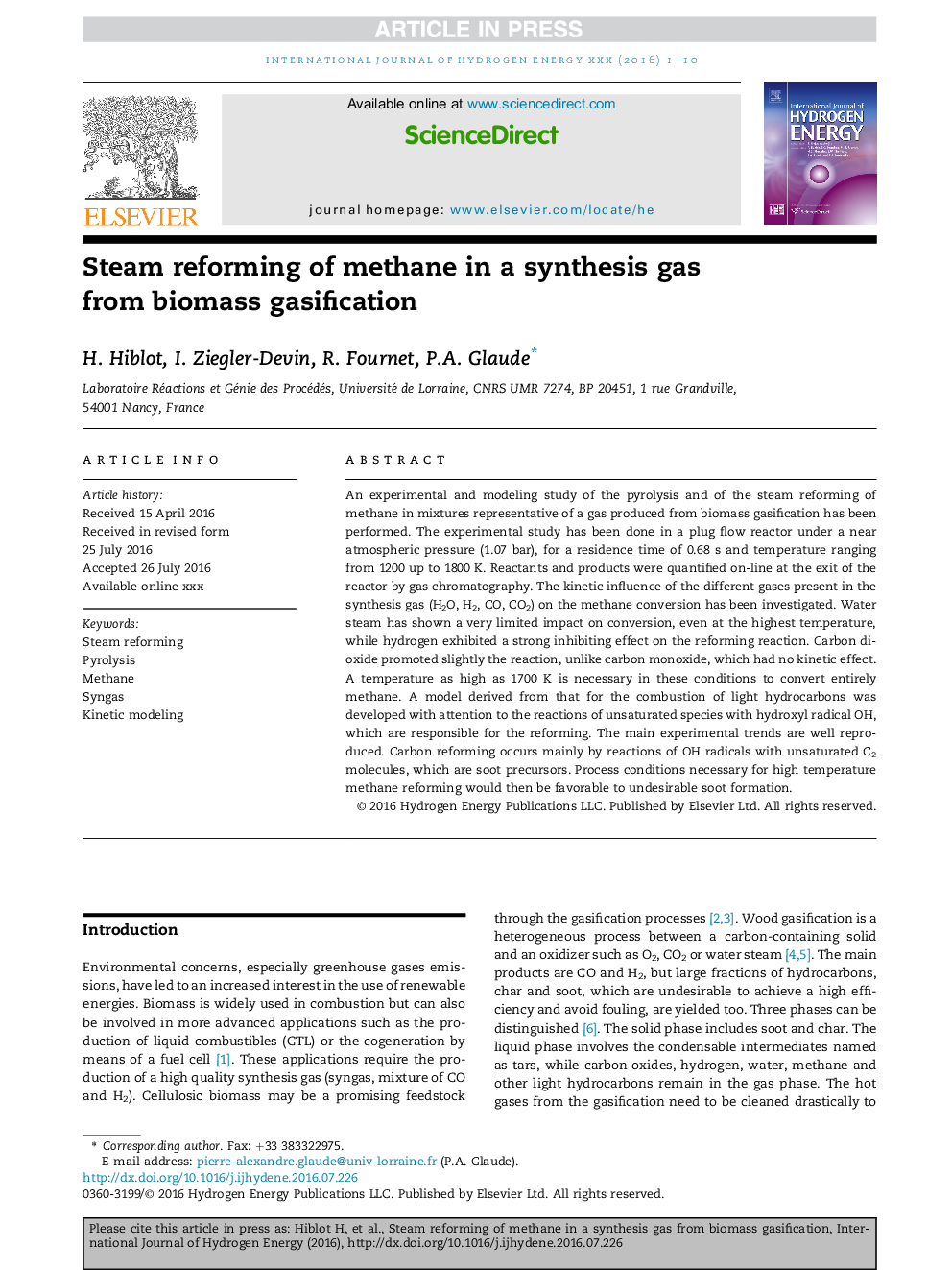| Article ID | Journal | Published Year | Pages | File Type |
|---|---|---|---|---|
| 5147383 | International Journal of Hydrogen Energy | 2016 | 10 Pages |
Abstract
An experimental and modeling study of the pyrolysis and of the steam reforming of methane in mixtures representative of a gas produced from biomass gasification has been performed. The experimental study has been done in a plug flow reactor under a near atmospheric pressure (1.07Â bar), for a residence time of 0.68Â s and temperature ranging from 1200 up to 1800Â K. Reactants and products were quantified on-line at the exit of the reactor by gas chromatography. The kinetic influence of the different gases present in the synthesis gas (H2O, H2, CO, CO2) on the methane conversion has been investigated. Water steam has shown a very limited impact on conversion, even at the highest temperature, while hydrogen exhibited a strong inhibiting effect on the reforming reaction. Carbon dioxide promoted slightly the reaction, unlike carbon monoxide, which had no kinetic effect. A temperature as high as 1700Â K is necessary in these conditions to convert entirely methane. A model derived from that for the combustion of light hydrocarbons was developed with attention to the reactions of unsaturated species with hydroxyl radical OH, which are responsible for the reforming. The main experimental trends are well reproduced. Carbon reforming occurs mainly by reactions of OH radicals with unsaturated C2 molecules, which are soot precursors. Process conditions necessary for high temperature methane reforming would then be favorable to undesirable soot formation.
Related Topics
Physical Sciences and Engineering
Chemistry
Electrochemistry
Authors
H. Hiblot, I. Ziegler-Devin, R. Fournet, P.A. Glaude,
